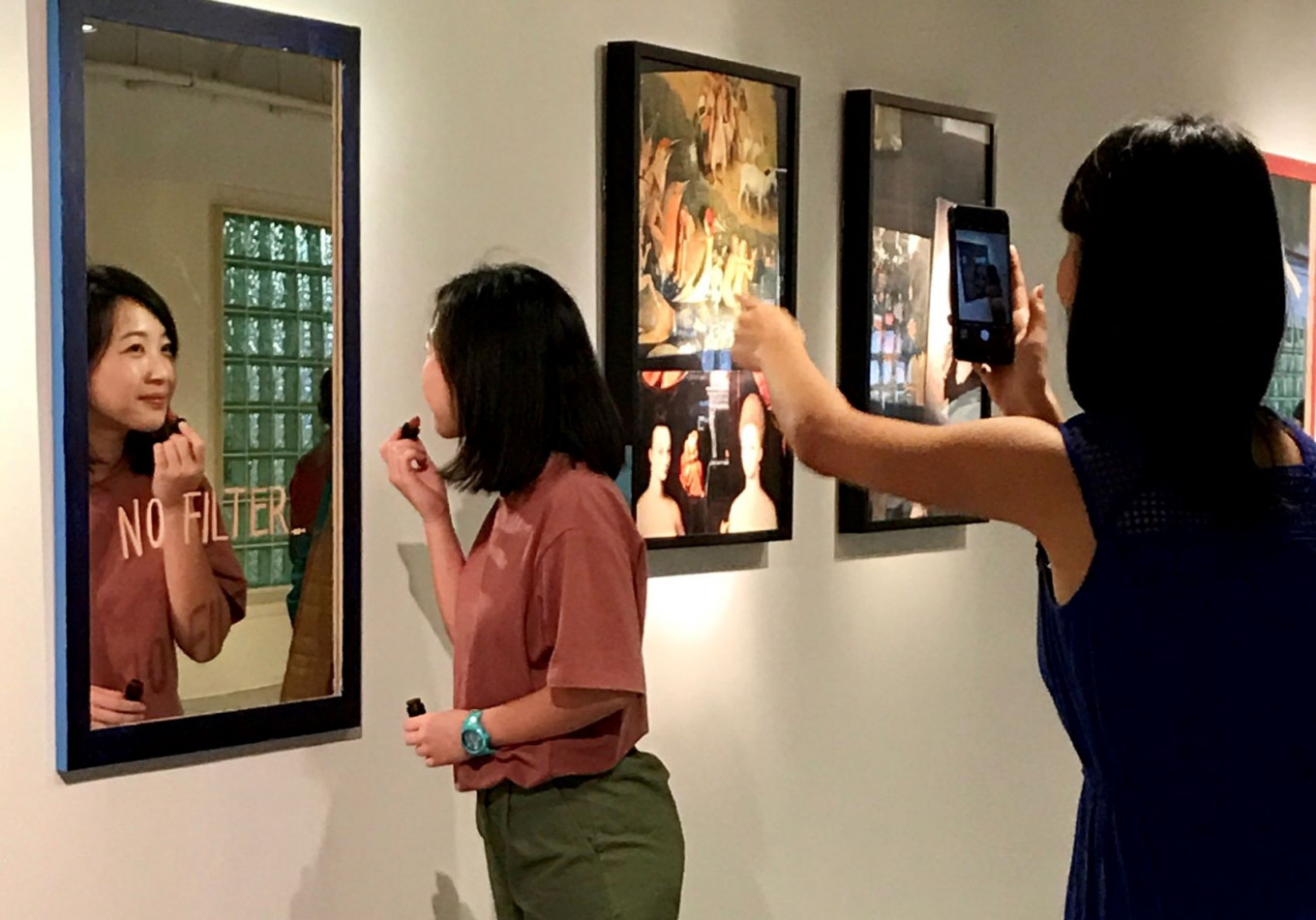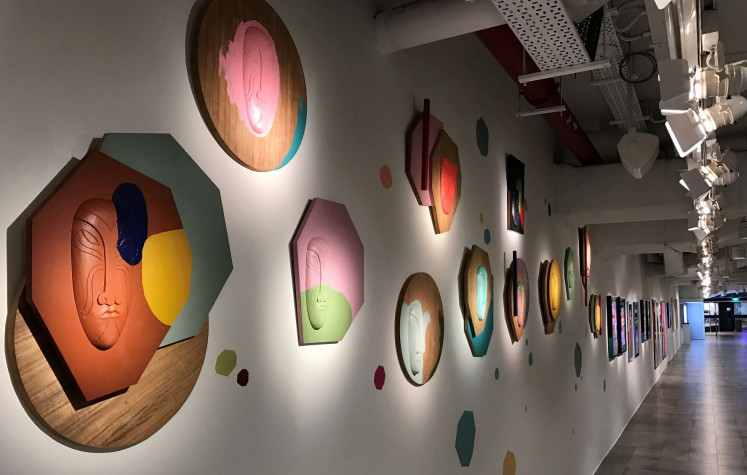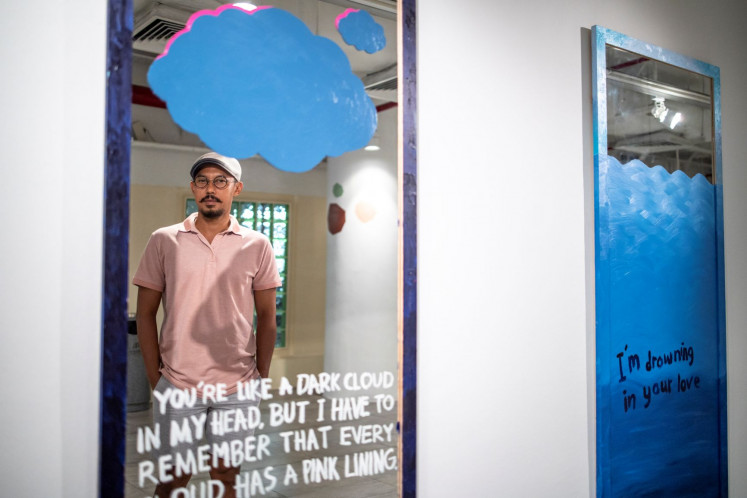Popular Reads
Top Results
Can't find what you're looking for?
View all search resultsPopular Reads
Top Results
Can't find what you're looking for?
View all search resultsArtist Ari Bayuaji displays his take on self-portrait obsession
An art exhibition tries to showcase the new culture that has arisen with the advent of social media – the pervasiveness of self-portraits
Change text size
Gift Premium Articles
to Anyone
I
ndonesian artist Ari Bayuaji is an expert in conveying aspects of daily life, as his works usually try to show the overlooked artistic value in everyday life through objects and places and their roles within society.
Dividing his time between Montreal and Bali, the artist is known mainly for his installations, which incorporate the use of found and ready-made objects that he finds in different parts of the world, thereby exposing himself also to the different mechanisms of other cultures.
His works have been exhibited in and outside of Indonesia, including Canada, the Netherlands and Taiwan.
Cultural references: Indonesian artist Ari Bayuaji showcases the historical evolution of self-portrait culture in his latest exhibition in Singapore's Esplanade Tunnel, which runs until March 31. (Courtesy of Ari Bayuaji/-)
His latest exhibition, currently being held in Singapore, aims to address the culture of self-portraiture and its ubiquity with how everyday people express themselves on a public level, driven by the competition with each other through the internet.
Held at the Esplanade Tunnel until March 31, the exhibition entitled “Self-Portrait” showcases several of Ari’s finer works that try to speak to the human condition surrounding the new culture that has arisen with the advent of social media: the pervasiveness of self-portraits.
Read also: Selfies: Root of all evil in Indonesian tourism
Self-portraits, according to the artist, were once limited to those who were affluent and influential enough to have them done. It was as if the self-portrait was a symbol of power, in the way that there is an object for others to worship.
But in the current age, with the culture of selfies, the self-portrait has become accessible to the wider public.
Because of the saturation, the artist’s work seems to want to remind the public of its significance in history and how history has affected how things are done in the current age.
Ari’s series of “self-portraits” displays an array of styles and formats, with each of the methods offering a different message about the commonality of the self-portrait in today’s society. Portraits of oneself usually speak volumes beyond the subject itself.
From the juxtaposition of Indonesian wooden masks with images of faces appropriated from paintings of old European painters such as the Mona Lisa and Johannes Vermeer’s Girl With the Pearl Earrings, to advertisements, to the use of mirrors that aim to convey a more straightforward reasoning behind the phenomenon of “selfies” and self-consciousness in the internet age.
Ari Bayuaji (Courtesy of Esplanade - Theatres on the Bay/-)Through these placements, Ari aims to showcase the historical evolution of self-portrait culture.
The objects used in this exhibition range from mirrors, wood, plywood, paper, charcoal and a lot of acrylic paint on unconventional surfaces.
Read also: Status: Online, but not present
All the artworks are put together across the Esplanade tunnel’s 98-meter-long wall, essentially incorporating the tunnel into a piece of art itself – ranging from dark representations of the phenomenon to lighthearted ones that encourage the viewer to actually feel good about taking pictures of themselves.
Playfully decorated mirrors that invite the interactivity of the visitors, to rounded charcoal-based faces depicting a kind of agony and anxiety within a culture that basically eschews privacy for the sake of being seen.
Portraits depicted by masks embedded within colorful backgrounds round off the exhibition's balances of moods and colors. All for the sake of Ari's own evaluation.
Ari said the materials used in the artworks, as well as holding the exhibition at the Esplanade Tunnel itself, enhanced the artworks’ meaning.
The exhibition is his second art project commissioned by The Esplanade Theatre on The Bay Singapore. The first was in 2014, in which he produced 1,400 wooden sculptures suspended from the ceiling of the Esplanade's concourse.
“The installation is really inspired by the tunnel itself and the people passing by the tunnel on a daily basis. For this installation, I wanted to create ‘automatic interaction’ between the public and my artwork. I want people to see themselves in my art”. (ste)













